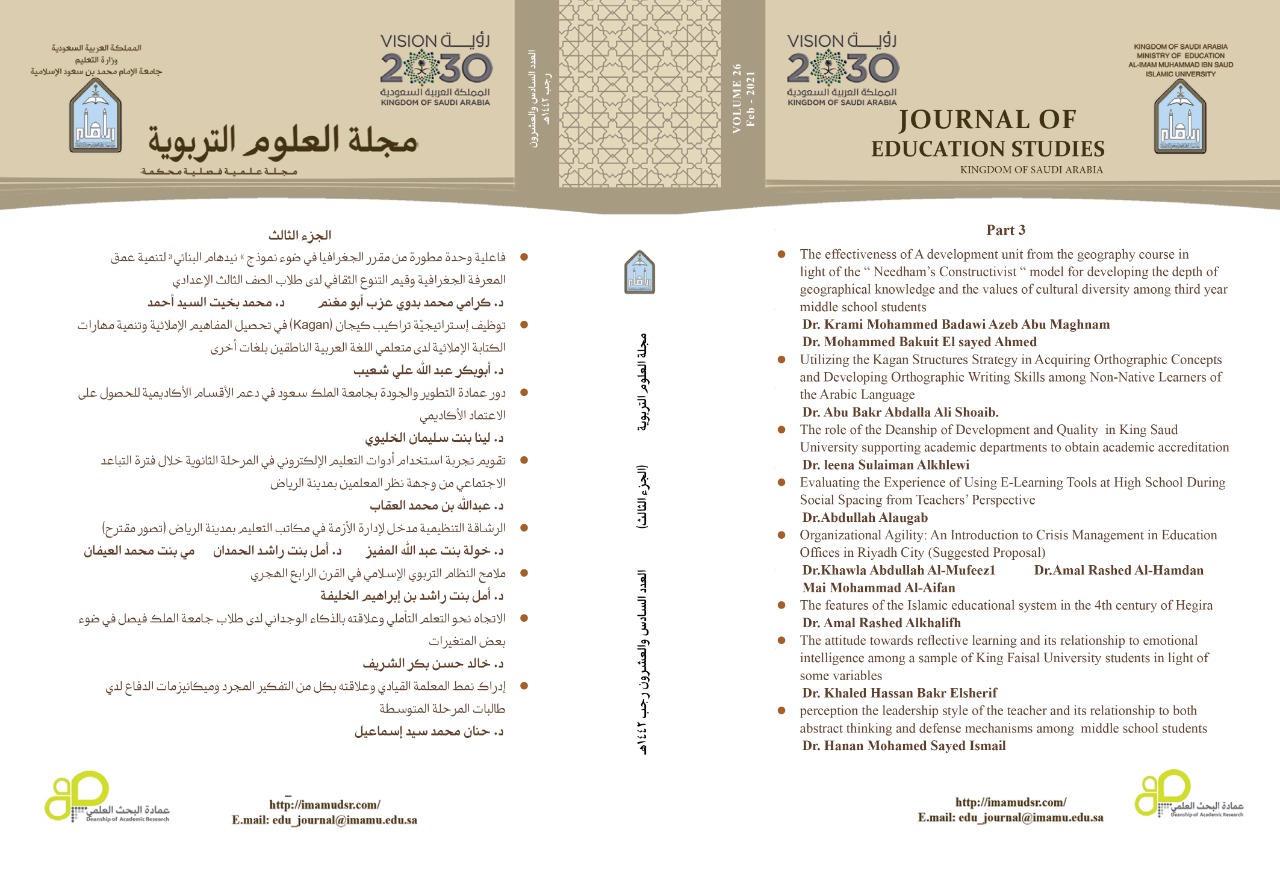The features of the Islamic educational system in the 4th century of Hegira
Keywords:
Islamic education, The Islamic educational system, The 4th century of Hegira.Abstract
The objectives of the current study was to shed light on the features of the Islamic educational system in the 4th century of Hegira by revealing the most important features of the political, economic، social and cultural aspect of the community. It was also to find out the learning educational institutions and the practice at that time; to identify the scientific efforts of the educational scholars and their financial and social position; and highlight the characteristics of the educational thought. The study used historical descriptive and documentation methods. The most significant findings stated that despite the political، economic and social deterioration in the 4th century of Hegira، but the general cultural aspect was at the top of the thought progress. That century witnessed development and diversification in the learning educational institutions. The findings showed that the educational thought in the 4th century of Hegira was self-independent; and the most key scholars of education were Ibn Algazar، Al-amari، Al-nefzawi، Al-qabasi and Ibn Masqaway. The social and financial position of scholars associated with their functions. The most significant advantages of the educational thought attributed to the fact that culture was commonly spread between different ethnic people; the educational thought was comprehensive towards human-being and flexible functions. The Muslims established ideal principles which are the essentials of Islamic education in that century. The Holy Qur’an is interested in developing scientific person and individual differences; and the scientific research was supported by Khulfa' (Governers) and ministers.




